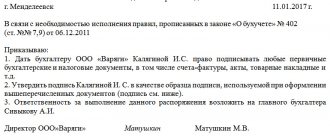Key Features
Lack of documents is not a valid reason for non-payment of taxes. The company is also not exempt from the obligation to undergo inspection by regulatory authorities. Let's look at an example. The company refused to pay the debt, citing the loss of primary assets. However, she did not provide evidence of loss. In this case, the organization develops debt. You will also have to pay a penalty. In order to avoid sanctions, it is necessary to prepare arguments in your defense in advance.
Question: Is it possible to confirm expenses for income tax purposes with restored copies of primary documents if their originals are lost (clause 1 of Article 252 of the Tax Code of the Russian Federation)? View answer
Wrongful corrections
Sometimes corrections are made to source documents when errors are discovered. Documents must be corrected in accordance with the law. Otherwise, the primary document may become invalid.
It is not allowed to make corrections to cash documents (clause 4.7 of the Directive of the Central Bank of the Russian Federation dated March 11, 2014 No. 3210-U). If an error is detected, you need to re-issue the document.
Corrections can be made to other primary documents. The procedure for correcting errors is set out in the Regulations on Documents and Document Flow in Accounting, approved by the USSR Ministry of Finance dated July 29, 1983 No. 105.
Procedure for loss of documents
Taking the right actions immediately after discovering a loss will help you avoid problems with regulatory authorities. Let's consider the sequence of measures taken:
- Creation of a commission. Its participants will be involved in establishing the causes of the loss. The conclusions must be stated in the act. It must indicate the circumstances of the incident.
- Creation of supporting documents. The company needs to present papers confirming the circumstances of the loss. If documents are missing, you need to send a statement to the police, and then get a certificate of initiation of a case. If papers are lost as a result of a fire, you need to draw up a report of the fire, and also take a certificate from the Ministry of Emergency Situations.
- Compiling an inventory of the missing primary item. Filling out the inventory is a voluntary step. However, it is still advisable to do this, since additional supporting documents will become an argument in favor of the company.
- Measures to restore documents. If no corrective action is taken, the company may be accused of dishonesty. We will consider the paper recovery algorithm in the next section.
Question: Is it legal to hold an organization liable under clause 2 of Art. 126 of the Tax Code of the Russian Federation for failure to submit lost documents (information) within the prescribed period at the request of the tax authority under Art. 93.1 of the Tax Code of the Russian Federation outside the scope of tax audits? View answer
IMPORTANT! When supporting documents (for example, a certificate of initiation of a case) are received, you must check them for errors. If the papers contain errors, the regulatory authorities will not take into account the argument about the loss of the primary document. Let's look at an example of judicial practice. The organization provided documents indicating that the primary site burned down. However, an error was made in the fire certificate. In particular, the address is incorrect. Because of this, additional taxes and penalties were assessed. You can get acquainted with the case in more detail by reading the resolution of the AS of the Ural District No. F09-9606/15 dated February 1, 2016.
Poor quality document from a partner
Here's another example. It shows that if you received an unfinished document from your partner, this does not mean that penalties can be imposed on your company.
EXAMPLE The tax inspectorate conducted an on-site audit, as a result of which a decision was made to hold the company accountable. The basis for this decision was, in particular, the lack of invoices in the 1-T form. However, the court did not agree with the point of view of the tax authorities, pointing out that the fact that the company posted the purchased goods was confirmed by invoices in the TORG-12 form. In response to this, the tax inspectorate gave another argument: in the invoices (TORG-12) there is no reference to the number and date of the invoice. But the arbitrators did not agree with this argument either, emphasizing that “the absence of a reference to the number and date of the waybill, upon actual acceptance of the goods for registration, confirmation by witnesses of the fact of delivery of the goods by the supplier, does not indicate the absence of delivery of the goods” (resolution of the Federal Antimonopoly Service of the West Siberian District dated September 22, 2010 in case No. A27-391/2010 (by decision of the Supreme Arbitration Court of the Russian Federation dated January 21, 2011 No. VAS-67/11, the case was refused to be transferred to the Presidium of the Supreme Arbitration Court of the Russian Federation for review in the order of supervision)).
Measures to restore primary documentation
The company must take the most active measures to restore documents. But even these will not be enough. It is also necessary to prepare papers that confirm the fact of the company’s active actions. Measures may be as follows:
- Conducting reconciliations with counterparties.
- Sending requests for document restoration.
- Providing justification for the process of invoice restoration.
- Providing correspondence with counterparties regarding the restoration of papers.
- Bringing receipts, checks, registers.
To restore, you must first appoint a responsible person. This person will be responsible for interaction with counterparties. All moments of communication with partners must be recorded. In particular, it is required to save correspondence, checks, and copies of invoices. The latter must be certified by an authorized person representing the counterparty.
We receive a primary bank account
To receive lost statements and payments, you need to send a request to a banking institution. You need to go to the bank where the company has an account. The request requires the following information:
- Title of the document.
- Bank contact details (full name of manager, address, TIN, KPP, contact person).
- Applicant's contact details.
- Please provide payment documents as soon as possible.
- Company current account number.
- Signature of the General Director.
Contacting the bank is the first step, since in this way you can establish the facts of non-cash payments and the amounts for them. Based on the information received, you can restore all previously performed operations.
We restore cash receipts
Cashier's checks are needed if the organization purchased property with cash. The receipt allows you to confirm the company's expenses. To obtain a new document, you need to contact the seller. However, the seller may not always provide a duplicate of the receipt. This is only possible if you have a cash register of the appropriate model. If it is not there, a copy of the check is requested. It is performed using copying equipment.
We request primary documents from counterparties
The company enters into agreements with its counterparties in duplicate. You can always request copies of agreements from your partner. In the request addressed to the counterparty, you must indicate this information:
- About the counterparty (company name, full name of the director, INN and KPP).
- Title of the document.
- Statement of circumstances.
- Request for copies.
- About the applicant, signature of the general director.
The company cannot always establish a list of missing documents. In this case, the documents are reconciled with the counterparty. Based on the results of the reconciliation, a report is drawn up. It lists missing documents.
Not all details are filled in
As arbitration practice shows, in such cases the courts often take the side of taxpayers.
PRIMEROO transferred funds to the foreign partner to pay for consulting services. However, the act confirming the provision of services did not contain all the necessary details. During the on-site inspection, tax inspectors regarded this as a violation of the Federal Law “On Accounting” and excluded the amount paid to the foreign partner from the cost price. As a result, it was decided to charge additional tax, as well as collect penalties and fines from the enterprise. did not agree with the inspection's decision and appealed to the arbitration court. Having studied the case materials, the court sided with the enterprise. He, in particular, pointed out that “minor deficiencies in the preparation of primary documents ... do not indicate the absence of a business transaction, as well as the absence of expenses for the company to pay for consulting services.”
Due to the abolition of the mandatory use of unified forms of primary documents, companies should reduce the number of disputes with inspectors. Controllers will no longer be able to “remove” expenses due to improperly executed documents, since the requirement to use standard forms of documents does not exist from January 1, 2013 (Article 9 of the Federal Law of December 6, 2011 No. 402-FZ).
Responsibility for loss of primary
The company is responsible for the safety of its primary documentation. If the subject loses papers, he will be held responsible for it. Let's consider offenses related to the loss of the primary, and responsibility for them:
- Violation of norms for accounting for income, expenses, and objects of taxation. If the violation was committed during one period, the fine will be 5,000 rubles (clause 1 of Article 120 of the Tax Code of the Russian Federation). If the offense lasted for more than one period, the fine will be 15,000 rubles (clause 2 of Article 120 of the Tax Code of the Russian Federation). If violations provoke a decrease in the tax base, the fine will be 10% of the amount of unpaid tax. The minimum fine will be 15,000 rubles (clause 3 of Article 120 of the Tax Code of the Russian Federation).
- Non-payment of tax or payment not in full due to a decrease in the tax base or incorrect calculations. A fine of 20% of the unpaid tax amount is imposed (clause 1 of Article 122 of the Tax Code of the Russian Federation). If conscious intent was revealed, the fine will be 40% of the unpaid tax (clause 3 of Article 122 of the Tax Code of the Russian Federation).
- The primary report was not sent to the tax office in due time. The fine will be 50 rubles for each missing document (clause 1 of Article 126 of the Tax Code of the Russian Federation).
Article 109 of the Tax Code of the Russian Federation provides cases when the guilty person will not be held accountable. In particular, this is the loss of documents due to force majeure circumstances (for example, a natural disaster). However, the actual presence of these circumstances will also have to be confirmed.
Primary document for an imaginary transaction
Considering that from January 1, 2014, it is impossible to accept for accounting documents documents that document facts of economic life that did not take place, including those underlying imaginary and feigned transactions (Article 9 of the Federal Law of December 6, 2011 No. 402-FZ ). Officials have determined the scope of responsibility for registration of such documents in accounting.
Thus, the person who compiled the primary document is recognized as responsible for registration of the fact of economic life. This entity (citizen or company) must ensure the timely transfer of the executed document to the accounting department for registration in accounting, as well as guarantee the reliability of its data.
As for the persons who are entrusted with accounting (for example: an accountant, a manager) or with whom an agreement has been concluded for the provision of accounting services (for example: an outsourcing company), they are not responsible for the compliance of the “primary” and accomplished facts of economic life.
Who will assign punishment - and to whom?
An application for the violator to bear responsibility is submitted by the tax inspectorate, and the punishment is imposed by the court (Part 1 of Article 23.1, Article 15.11 of the Code of Administrative Offenses of the Russian Federation).
The perpetrator of the offense is identified individually.
Typically, courts proceed from the fact that the manager is responsible for organizing accounting, and the chief accountant is responsible for its correct maintenance and timely preparation of reports (clause 24 of the resolution of the Plenum of the Supreme Court dated October 24, 2006 No. 18). The subject of such an offense is usually recognized as the chief accountant or an accountant with the rights of the chief.
The head of an organization may also be found guilty if:
- the organization did not have a chief accountant at all (Supreme Court decision dated 06/09/2005 No. 77-ad06-2);
- accounting and calculation of taxes was carried out by a specialized organization (clause 26 of the resolution of the Plenum of the Supreme Court dated October 24, 2006 No. 18);
- the reason for the violation was a written order from the manager, with which the chief accountant did not agree (clause 25 of the resolution of the Plenum of the Supreme Court dated October 24, 2006 No. 18).








